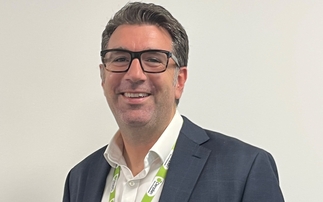For thousands of employees with Retail Price Index (RPI) linked salaries, the economic downturn will cost them dearly. Sue Weir looks at how the effect of what for many will mean a pay freeze could be softened
Eight out of 10 employers use the Retail Prices Index (RPI) as a benchmark for salary reviews, according to the Chartered Institute of Personnel and Development (CIPD). National Statistics define Retail Prices Index (RPI) as ‘an important domestic indicator of inflation in the UK which measures the average change from month to month in the prices of goods and services purchased in the UK.’ The Office of National Statistics (ONS) calculates RPI by collating the costs of thousands of goods people regularly buy, from basic goods to luxury and leisure items. In August 2009 the RPI stood at -1.3% which is the lowest since records began and will impact on salaries in both the public and private sectors.
Facing the freeze
With a significant number of pay agreements still linked to the annual RPI inflation level, the fall increases the likelihood that many workers will face a pay freeze this year. This is backed up by research from independent analyst organisation IDS who have announced that in the three months to the end of June 2009 a third of all pay deals have been pay freezes.
At this years Conservative and Labour party conferences there was much debate about freezing public sector salaries as a way of addressing the public deficit. Alistair Darling’s proposal would see up to 40,000 senior public sector workers feel the impact of a pay freeze. He has also recommended that another 700,000 middle-ranking civil servants, including doctors, dentists and prison officers will get rises of up to 1%. If implemented, it is thought that this will culminate in the toughest public sector salary deal in 30 years.
Wage freezes naturally come as a shock to many who have enjoyed increases based on higher inflation in recent years and even workers whose pay is not directly linked to RPI are expected to feel the impact. For some people they may also find their private pensions affected as a number of policies are also index linked. In the year to July 2009, average earnings for the whole economy including bonuses, fell to 0.9%, down from a revised 1.9% in June, states IDS.
The recession is having a negative effect on most people with many experiencing low morale, worrying about job security and health problems associated with stress. Employers will in turn experience levels of low productivity, increased absenteeism and even increased staff turnover all of which will have cost implications to an organisation’s bottom line. Intermediaries need to be aware of these issues and factors such as the RPI measure which are contributing to employers’ decision making processes.
Private sector union Unite has the view that during these difficult times employers need to do what they can to keep staff morale as high as possible and simply imposing a pay freeze is not a confidence booster. The economy relies on confidence which means employers need to find ways to reward staff fairly.
Communication is key
Communication is key to resolving dissatisfaction among a workforce so it is important that employers engage with their employees, especially when the subject of wages is such a sensitive one. General discussions and individual explanations will help paint a clearer picture to the employee as to the economic reasons behind why they are not getting a pay rise.
Looking at healthcare as part of an employee benefits package may therefore seem like a low priority, but it can reward employees fairly and renew confidence. Employers also need to be mindful that salary is not the be all and end all to employees. The CIPD describes salaries as one of the main factors in attracting staff, but it is benefits which keep them engaged.
Healthcare cash plans (HCPs) are an ideal way to address staff facing pay cuts or freezes and provide a real value for money employee benefit. As the individual can be reimbursed for health costs, they feel the full benefit of cash back quickly when they need it most. Employees can claim back the costs of everyday healthcare such as visits to the dentist or optician, to stays in hospital, consultancy and complementary and alternative therapies. Employees can also see that the organisation is making a commitment to their health and that they are not just considered as a resource but valued as a person.
One area that is often deemed as being expensive, particularly as personal finances are stretched, is dental health. For example, without the security of a HCP, it is widely recognised that many people only visit the dentist if they have a problem. With a cash plan an individual has the peace of mind that if they do need to pay for such costs then they can easily claim some back. Following a preventative approach to healthcare can also minimise long periods of absenteeism which can be costly to an employer.
There has been a marked rise in the take up of cash plans according to industry analyst Laing & Buisson, as stated in their 2008 Health and Care Cover UK Market Report. They found that the number of company paid HCPs rose sharply in 2007, increasing by 27% to reach 293,000 at the end of the year, believing this to be responsible for driving overall cash plan market growth. The key factors which have led to the increased popularity of the HCP include greater interest from intermediaries, the widening appeal of add-on benefits such as health screening and employee assistance programmes (EAPs). The affordability and inclusivity of HCPs also means any size organisation can provide healthcare without it being prohibitively expensive. Savings can also be made by applying for P11D income tax relief where healthcare benefits, such as eyesight tests and stress prevention, are supplied by an employer to adhere to duty of care obligations.
New expenditures
Any new expenditure an organisation commits to should be closely monitored to ensure a return on investment. To get the most from HCPs, employers need to encourage employees to use the benefits in their healthcare plans by promoting and educating the workforce on the benefits of maintaining a positive and preventative approach to health. In return an employer will have an easy to implement, cost effective solution which can be implemented across the entire workforce. HCPs also have the added advantage of being based on a community pricing strategy during the underwriting process which means if a client has high claims in one year it should not mean increased premiums the next.
Widespread speculation continues about when the recession will end and what percentage of UK businesses will survive. IDS have found that in their most recent review of inflation forecasts, the prediction is RPI inflation will remain negative until the end of 2009, with a low point of -2.2 on average in September. However, there may be light at the end of the tunnel as it is expected the RPI may reach 2% in the spring of 2010.
When the economic climate is gloomy all organisations whether public or private sector will be more likely to curb or monitor spending. Employee morale can be expected to be even lower and levels of stress and ill health higher. The increased popularity of healthcare cash plans therefore is not surprising. As healthcare costs increase, employers will be conscious of the pressures staff feel when they may be struggling financially but are expected to be loyal and work hard during bleak times. But intermediaries and providers must not be complacent as despite a proven demand, competition will be tough and this should instead encourage everyone in the market to raise their game.
Sue Weir is chief executive of Medicash











